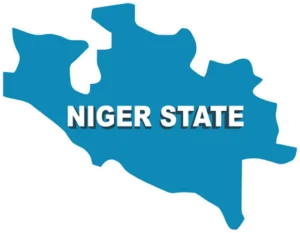Deep losses: Ending the menace of gas flaring
Oil and Gas exploration has had both positive and negative impacts on Nigeria. While the sector has grown to become the honey-pot of the Country for about five decades, the sides to its status in relation to the economy have been deep seated. For about four decades, revenue from the sector has been the cornerstone of government spending, a development that kept the sector as the mainstay of the economy.
However, it is obvious the proceeds and potentials of the sector have not fully benefitted the Country as expected. Among the conversations on the shortfalls has been the concept of gas flaring. It is on record that though Nigeria houses robust reserves of 201 trillion standard cubic feet and unproven gas reserves of 600 trillion standard cubic feet, yet production of gas remains very low and unstable.
The shortage is seen to have recorded negative impacts from economic losses to environmental and social impacts. Aside the economic shortfalls and wastage from the deficiency, the environmental and health hazards posed by the menace have been a subject of deep concern. In the words of Speaker of the House of Representatives, Hon. Tajudeen Abbas, “Firstly, gas flaring represents a tremendous waste of valuable resources. Natural gas is a precious energy source that could be utilised for various purposes, such as electricity generation, heating, or industrial processes. By simply burning off this gas, we are squandering a valuable resource that could contribute to energy security and sustainability.
“Moreover, gas flaring has led to substantial economic losses and revenue decline for the nation. The flared gas represents lost revenue that could have been generated through its sale or utilisation. Official records indicate that we lose about $2.5 billion annually to gas flaring.
“However, the consequences of gas flaring extend beyond economic considerations. It also poses serious health hazards to nearby communities. The combustion of gases released during flaring produces various toxic substances which have detrimental effects on human health when inhaled or exposed to over an extended period. Affected communities often experience higher rates of respiratory diseases, skin disorders, and other health issues compared to areas without gas flaring
“As a major contributor to climate change and environmental degradation, gas flaring has direct and indirect impacts on soil, water, and wildlife. The atmospheric contaminants associated with it, acidify the soil, deplete soil nutrient and stunt the growth of crops, thereby affecting agricultural productivity.
“In addition to soil impact, the aquatic ecosystem is equally destroyed owing to increased water temperatures in nearby rivers and oceans. As a result, fish stocks may decline or even collapse in our rivers and oceans. Environmental experts have equally discovered that the bright light, noise and heat of gas flares scare away wildlife, leading to their migration to more friendly environments.”
The economic sabotage from the wastage has seen the Country lose an average of $2.5 billion annually to gas flaring. The losses and hazards have called for reason to address the flagrant waste. Recently, the House of Representatives harped on the need to address the shortfalls. The development was informed around the impacts and the refusal of some oil companies to pay fine imposed on them for flaring gas.
The subsisting measures to manage the deficiency have been majorly set around fines imposed on oil companies for flaring gas. The framework appears largely to be deficient as gas flaring has not ceased, while fines imposed have been ignored by some companies. Recently, the House of Representatives vowed to recover a whopping sum of over $9 billion imposed as fines for gas flaring by the Federal Government on local and foreign companies operating in the oil and gas industry, but which the latter have failed to pay. The lower chamber has vowed it would do all within its power to ensure the recovery of all unpaid fines as well as facilitate compliance with extant legislations and regulations guiding operation in the sector. This is just as the House has said it will be taking up matters, going forward, to see how appropriate penalties are meted out to those companies still guilty of the act of polluting the environment with flaring of gas.
Consequently, the House has constituted a Committe with the terms of reference to among others “investigate the payment of gas flaring fines and management of proceeds therefrom; and determine the extent of compensation to oil producing communities in accordance with the Petroleum Industry Act. Engage affected communities, CSOs and experts. Make recommendations for further legislative action.”
The chairman of the Ad-hoc Committee investigating gas flaring, Hon. Ahmed Munir at the post-investigative hearing briefing in Abuja recently which was attended by various stakeholders drawn from the Federal Ministry of Environment, Revenue Mobilisation Allocation and Fiscal Commission (RMAFC), National Oil Spill Detection and Response Agency (NOSDRA), said the lower chamber will be investigating the rationale behind a $277,258,304.72 disparity in the gas flare penalties computed by NOSDRA and the Nigerian Upstream Petroleum Regulatory Commission (NUPRC). Munir had said it has come to the notice of the House the level of impunity being displayed by operators in the sector, stating that the 10th Assembly will do all within its power to ensure the recovery of all unpaid fines issued as penalties for gas flaring.
He had said: “I can assure you that we will not take this lying down. There are two ways to go about it; we have the issue of penalties that are not paid, amounting to about $9 billion or thereabout, that one is there. We know how to recover it. Secondly, going forward, those that are still polluting how do you ensure you get it down to zero and what are the penalties that are going to be out in place?
“Thirdly, the big difference between then and now is, we now have a PIA in place so how do you implement it? Where do we have loopholes? That is why we are here to hear from the people concerned. Is there any amendment that will be required? If you are going to bid for oil bloc in Nigeria, and you see that out of the criteria one is your gas master plan, how do you key into that? You can’t win a bid without ensuring you will be able to utilise that gas or evacuate the gas responsibly.
“The issue of how many people do FIRS runaround and make them to pay their taxes, if you are a contractor and you are bidding, and you don’t have your FIRS Certificate, you are not going to go anywhere if you don’t have various certificates whether BPP (Bureau of Public Procurement), BPE (Bureau of Public Enterprises) or whatever may be the case.
“So, if don’t have that, you can’t win the bid. So, are we going to go and look for you to pay your fees or you go yourself to pay your fees? So, we have to create a mechanism where the business environment requires that certain things need to be put in place. If an establishment is going out to go and look for loan and you are owing another bank, I believe there’s a central database of CBN that even if you are owing N1 you’ll be declined. So, why shouldn’t we have a centralised database of defaulters owing, of the people who are not doing the right thing they can’t further renege on these issues.”
According to the Director General, NOSDRA, Mr. Idris Musa, the extant penalties on gas flaring are to serve as deterrent, noting that the penalties on gas flaring should be stiffened. While stressing the need for improvement on the penalty application process and procedure of the application and collection, he had harped on the need to abolish the dichotomy of penalty administration. According to him, a total of 3.8 billion Mscf was flared between 2013 to date while total sum of $7.6 billion penalties are payable.
Also, the RMAFC Chairman, Gas Monitoring Committee, Mr. Patrick Mgbebu had disclosed that the gas flare penalty payment regime from 2013-2018 (2018 Jan-June) was US$0.30, while from 2018 (July-Dec) to 2023. It is pegged at $2.00. He had noted that within the period in question, the Federation Account was shortchanged.
“The penalties payable amounted to $3,465,299,226.55 and the value of gas would have been $12,403,000,001.20 if the gas was sold and not flared,” he had disclosed. The Commission compared the data from NOSDRA with the data from the Nigerian Upstream Petroleum Regulatory Commission (NUPRC) and the following observations were made; that the volume of gas flared according to NOSDRA and NUPRC were 838,667,211 Mscf and 700,975,019 Mscf respectively. The difference which is 137,692,192 Mscf indicated that the Federation Account was shortchanged. It should be noted that the comparison covered three years from 2020 to 2022. That the value of gas flared according to NOSDRA and NUPRC are $320,583,355.48 and $43,325,050.76 respectively. As such the variance indicated that the Federation Account was shortchanged by $277,258,304.72,” he had disclosed.
On further strategies to address the deficiency, Director at Federal Ministry of Environment, Mr. Olubunmi Olusanya, has harped on the need to give legislative backing to the use of oil tracker as benchmark for sanctioning of erring companies.
“I also want to plead that the oil tracker should be given a legislative backing, so that it can be used as benchmark for sanctioning of the 44 companies. Presently, a lot of companies are flaring because what they are flaring is nothing compared to the investment in the utilisation of gas that is being flared. But when the penalty is adjusted appropriately and we are not depending on their meters and we are using the gas flare meter developed by NOSDRA, and they are paying heavily for the flaring gases, I’m very sure all of them will begin to think of alternative use of gas being flared unabatedly,” his words.
It is quite important to give heed to the submission to the use of oil tracker as benchmark for sanctioning of erring companies to give expression to the idea by legislative backing. However, this is not exhaustive.
According to the Speaker of the House of Representatives, it was in the light of the negative impacts of gas flaring that the Committee constituted was entrusted with the responsibility of thoroughly examining the issue, “understanding its causes and impacts, and proposing effective solutions to mitigate its adverse effects on our environment, economy, and citizens.”
“You are to identify all private and public establishments involved in gas flaring; Assess the level of implementation of legislations on gas flaring; Determine the efficacy or otherwise of such legislations; investigate the payment of gas flaring fines and management of proceeds therefrom; and determine the extent of compensation to oil producing communities in accordance with the Petroleum Industry Act. Engage affected communities, CSOs and experts. Make recommendations for further legislative action,” he had told members of the Committee.
It is important the House of Representatives take the conversation to centre more broadly on scopic coverage speaking to effective measures of management to stop the flagrant flaring of gas, which has formed the order of recognition in the operations of companies, particularly in the Niger Delta region. Hence, while recovery of the defaults in payment of fines is important and essential, centering the discussion more focused on the long term purview of how the system can be regulated and standardised for operators to abide by enhanced practices to halt the deficiencies informing gas flaring is much more strategic. Hence, more pertinent for the House is to build a centre of focus towards such engagement in the dealings of the committee among other legislative efforts centred on ending the poor management around the gas flaring phenomenon.




